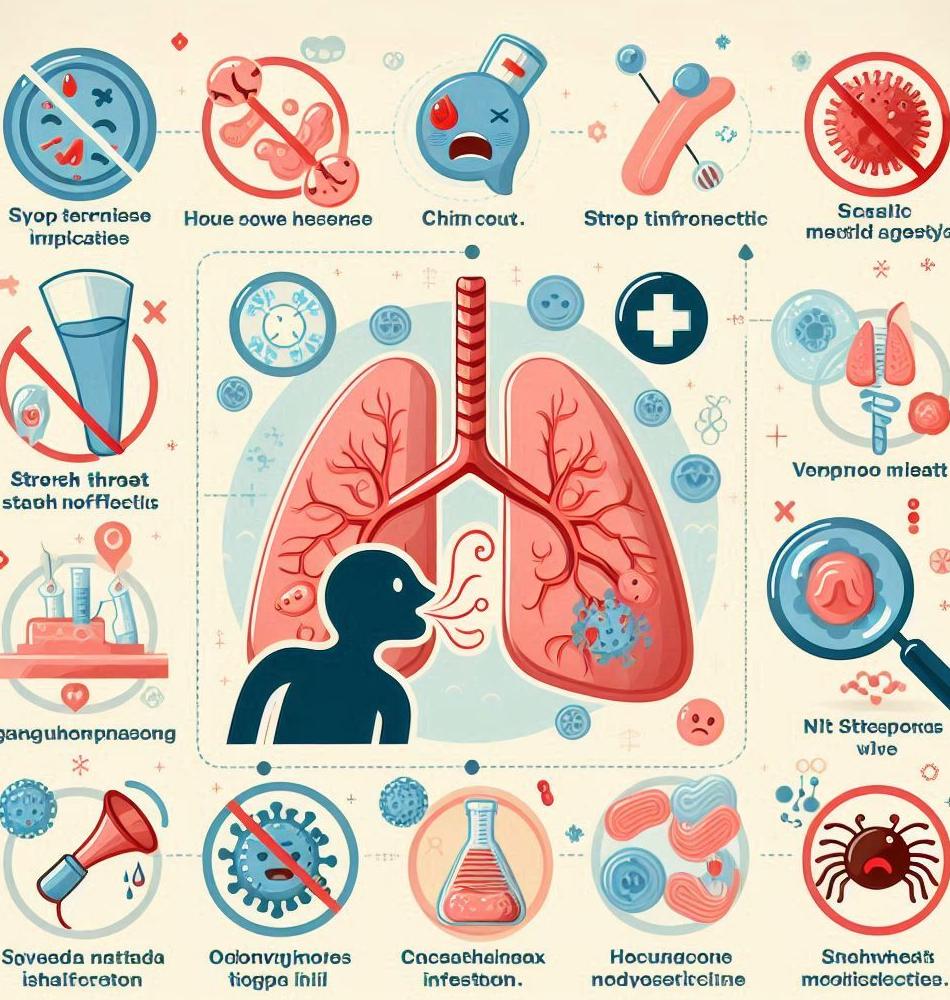Explore the details of strep throat infection, its causes, symptoms, and treatment options available to manage this common illness.
Introduction 🌟
Have you ever felt a sudden sharp pain in your throat while swallowing? If so, you might have experienced the annoyance of a strep throat infection. This common ailment is often mistaken for regular sore throats but has distinct characteristics that set it apart. In this article, we will delve deep into what strep throat is, how it manifests itself, and what you can do to treat it effectively. So, grab a throat lozenge, and let's get started!
What is Strep Throat? 🎤
Strep throat is a bacterial infection caused by group A Streptococcus (GAS). This infection primarily affects the throat and tonsils, leading to discomfort and feelings of being unwell. While strep throat can occur at any age, it is most common among children between the ages of 5 and 15. The bacteria spread through respiratory droplets from an infected person's cough or sneeze. Strep throat is contagious and can also be contracted by sharing food or drinks with an infected individual.
Causes of Strep Throat 💡
Strep throat is primarily caused by the Streptococcus pyogenes bacteria. This bacterium can be found in the throat and on the skin of infected individuals. Some common causes include:
- Close contact with an infected person
- Touching surfaces contaminated with the bacteria
- Weak immune system
- Seasonal allergies or other respiratory conditions
Symptoms to Look Out For 🚨
The symptoms of strep throat can develop quickly, often within one to three days after exposure to the bacteria. Common symptoms include:
- Sore throat
- Red and swollen tonsils
- White patches or streaks on the tonsils
- Fever over 101°F (38.3°C)
- Pain when swallowing
- Swollen lymph nodes in the neck
- Headache
- Body aches
But wait, how can you differentiate strep throat from a common cold or viral sore throat? 🤔
It's essential to notice the differences. Unlike a cold, strep throat typically does not accompany a cough, runny nose, or hoarseness. If you have these symptoms, you might be dealing with a viral infection instead.
Diagnosis of Strep Throat 🔍
Determining if you have strep throat usually involves a physical examination by a healthcare professional. Here are common diagnostic steps:
- The doctor will inspect your throat for redness, swelling, and white patches.
- A rapid strep test may be performed to detect the presence of GAS bacteria.
- If the rapid test is negative but strep throat is still suspected, a throat culture might be taken and sent to a lab for further testing.
Treatment Options for Strep Throat 💊
Once diagnosed, treatment for strep throat typically focuses on alleviating symptoms and eliminating the bacteria. Here are some options:
Antibiotics 📜
Antibiotics are the primary treatment for strep throat. They can help reduce symptom duration and prevent complications. Common antibiotics prescribed include:
- Penicillin
- Amoxicillin
- Cefadroxil
It's crucial to complete the entire course as prescribed, even if you start feeling better sooner to prevent a relapse or possible complications.
Home Remedies for Relief 🏡
Along with antibiotics, you can take measures to ease your discomfort:
- Gargle with warm salt water to soothe your throat
- Drink plenty of fluids to stay hydrated
- Use throat lozenges to relieve irritation
- Take over-the-counter pain relievers, such as acetaminophen or ibuprofen
Complications of Untreated Strep Throat ⚠️
Ignoring strep throat or failing to complete antibiotic treatment could lead to complications such as:
- Rheumatic fever, which can damage heart valves
- Kidney inflammation (Post-streptococcal glomerulonephritis)
- Abscess formation around the tonsils
- Sinus infections or ear infections
So, never overlook severe or persisting symptoms. Consult a healthcare provider for a proper evaluation!
Frequently Asked Questions About Strep Throat ❓
- Can strep throat resolve without treatment? While some mild cases may resolve on their own, it's essential to treat strep throat to avoid complications.
- How long is strep throat contagious? Strep throat stays contagious for about 24 to 48 hours after starting antibiotics. Without treatment, it can remain contagious for a longer duration.
- Are there any long-term effects of strep throat? Most individuals recover fully, but untreated cases can lead to serious health complications.
- What should I do if I suspect I have strep throat? Visit your healthcare provider for an evaluation and appropriate tests.
- Can adults get strep throat? Yes, while it is more common in children, adults can also contract strep throat.
Conclusion 🌈
Strep throat is more than just a common sore throat; it's a bacterial infection that can lead to significant discomfort if left untreated. Proper diagnosis, prompt treatment with antibiotics, and self-care can help alleviate symptoms and avoid complications. Remember to seek medical attention if you're experiencing significant throat pain or other related symptoms. Staying informed and proactive is key to tackling strep throat efficiently!


